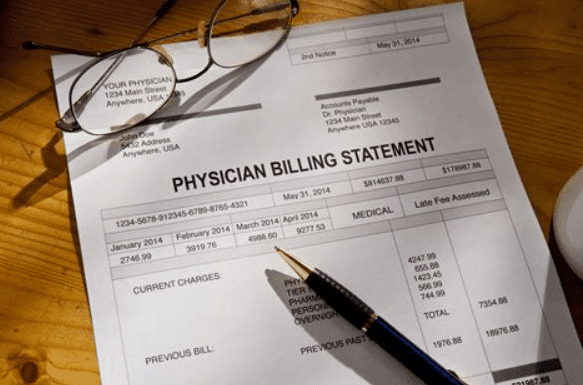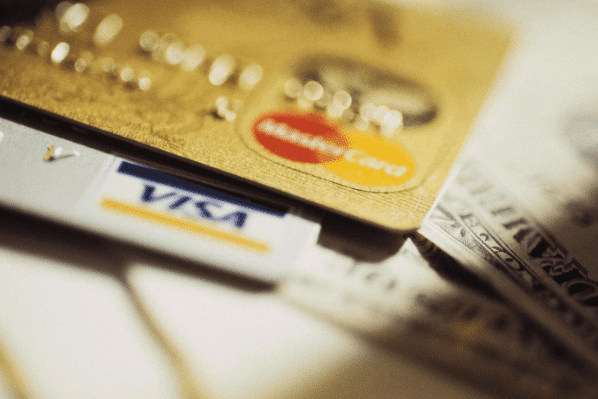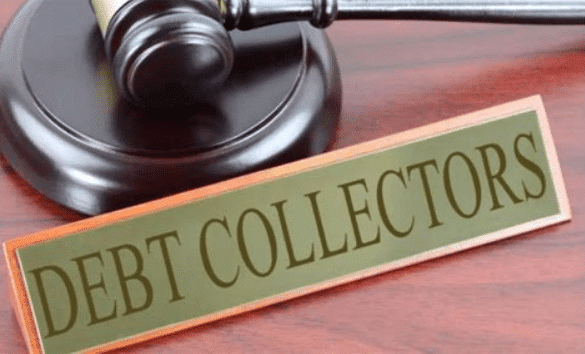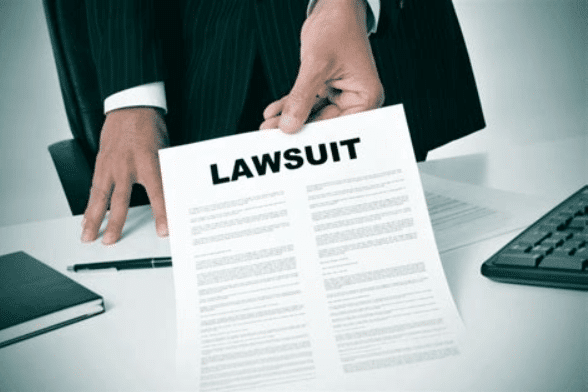Are you being sued by Cypress Financial Recoveries? Not sure what to do next? Find out how to respond to a debt collection lawsuit and win in court.
Cypress Financial Recoveries, LLC is a New Jersey debt buyer, known for buying portfolios of old debts. These come from banks, credit card companies, hospitals, doctors, as well as cell phone companies, and car companies. Most often these are purchased for pennies on the dollar, but Cypress Financial Recoveries will still look to collect the full amount from you, the consumer. They may even look to tack on interest, penalties, late fees, overdraft fees, and lawyer’s fees.
Known violations of Cypress Financial Recoveries
If Cypress Financial Recoveries has violated federal debt collection laws, such as the Fair Debt Collection Practices Act (FDCPA), it’s essential to take action to protect your rights. Here are some known violations that you should be aware of:
- Attempts to Collect on Debt Not Owed: Cypress Financial Recoveries may continue to attempt to collect on a debt that you do not owe. This is a violation of the FDCPA, which prohibits debt collectors from pursuing payment for debts that are not valid or owed by the consumer.
- Unethical Communication Tactics: Debt collectors are prohibited from using unethical communication tactics to collect a debt. This includes harassment, threats, or abusive language directed towards the consumer.
- Disclosure of Debt: Cypress Financial Recoveries cannot disclose your debt to anyone other than your spouse or attorney without your consent. Sharing information about your debt with third parties is a violation of your privacy rights under the FDCPA.
- Illegal Actions: Debt collectors are prohibited from taking or threatening illegal actions to collect a debt. This includes threats of violence, arrest, or legal action that they do not intend to take.
- False Statements: Cypress Financial Recoveries cannot make false statements or misrepresentations in an attempt to collect a debt. This includes falsely claiming to be an attorney, misrepresenting the amount of the debt, or threatening legal action that they cannot or do not intend to take.
- Improper Contact: Debt collectors must adhere to certain rules when contacting consumers about a debt. This includes restrictions on contacting consumers at inconvenient times or places, such as early morning or late at night.
- Excessive Phone Calls: Cypress Financial Recoveries cannot engage in excessive or harassing phone calls to collect a debt. The FDCPA limits the number of times a debt collector can contact you by phone and prohibits them from calling repeatedly with the intent to harass or annoy.
If you believe Cypress Financial Recoveries has violated any of these provisions of the FDCPA, you have the right to take legal action against them. You can file a complaint with the Consumer Financial Protection Bureau (CFPB) or consult with an attorney who specializes in debt collection harassment cases.
How to beat Cypress Financial Recoveries
In a debt collection lawsuit, the main goal of Cypress Financial Recoveries is to prove that you are responsible for the debt. This is because as the plaintiff, Cypress Financial Recoveries has the burden of proof. To meet the burden, Cypress Financial Recoveries must prove that they have the right to sue you, you are responsible for the debt, and you owe the amount that you are being sued for.
To win the case against you, the proof submitted by the Cypress Financial Recoveries must be based on “personal knowledge”. This means that Cypress Financial Recoveries must have seen a document that proves you are responsible for the debt. This might include credit card bills or a signed credit agreement. Otherwise, the evidence is considered “hearsay” and it cannot be used against you in court.
ZumaZip helps you respond to debt collectors fast and win in court.
What to do when sued for a debt
If you have been sued by Cypress Financial Recoveries for debt, then you need to explore your options and understand what to expect.
Gather information on the debt
To effectively deal with Cypress Financial Recoveries, it’s essential to gather information about your debt and understand your rights. Begin by researching Cypress Financial Recoveries to ascertain their identity and gather details about your debt.
Determine the age of your debt and whether it has surpassed the statute of limitations. If the debt is time-barred, it means you cannot be sued for it. However, some debt collectors may still attempt to pursue legal action, which constitutes a violation of your consumer rights. In such cases, you have grounds to counter-sue.
By collecting relevant information about your debt and understanding the statute of limitations, you can assert your rights and defend yourself against any unlawful debt collection practices by Cypress Financial Recoveries.
Respond to the debt collection lawsuit
Responding to the debt collection lawsuit within the specified timeframe is crucial to protect your rights and interests. Typically, you’ll have between 20 to 40 days from the date of service to submit your response. Failure to respond can result in serious consequences, such as wage garnishment, bank levies, or property seizure.
Submitting your response allows you to present your side of the story and contest the claims made against you. It’s an opportunity to assert any defenses you may have and challenge the validity of the debt.
By taking prompt action and responding to the lawsuit, you can effectively defend yourself against debt collection efforts and mitigate the potential impact on your financial situation.
Use ZumaZip to respond to debt collection lawsuits in 15 minutes.
Show up for the hearing
Attending your hearing is crucial as it offers an opportunity to present your defense. Failing to appear could result in an automatic loss of the case. During the hearing, you’ll have the chance to plead your case and provide any evidence or arguments in your defense.
The judge will carefully consider all the information presented and make a decision regarding the outcome of the case. This decision may involve determining whether you’re obligated to pay the debt or if there’s an opportunity to negotiate a settlement.
By showing up for your hearing and actively participating in the legal proceedings, you have a better chance of achieving a favorable outcome and resolving the matter effectively.
Other ways to handle your debt
When it comes to handling your debt, there are several options available to you depending on your situation.
- Payment Plan: Setting up a payment plan allows you to gradually pay off the debt over time. This can be a manageable approach if you’re able to make regular payments within your budget.
- Debt Settlement: Another option is to negotiate a settlement with the creditor or debt collector. This involves agreeing to pay a reduced amount, typically less than the original debt owed. Debt settlement can be a viable option if you’re unable to afford the full amount and the creditor is willing to accept a lower payment as full satisfaction of the debt.
- Legal Defense: If you believe you shouldn’t be held responsible for the debt, you can present your case in court. This may involve demonstrating that the debt is invalid due to reasons such as the item not functioning as promised, non-delivery of goods or services, or fraudulent activity associated with the debt.
- Verification of Debt: If you dispute the validity of the debt, you have the right to request verification from the debt collector. This entails asking the collector to provide evidence that you owe the debt, such as copies of the original agreement or statements.
Each option carries its own considerations and implications, so it’s essential to carefully assess your situation and determine the best course of action. Seeking advice from a financial advisor or legal professional can also provide valuable guidance in exploring these alternatives and making informed decisions about managing your debt.
Make the right affirmative defense with ZumaZip.
Using affirmative defenses in your Answer
Each state is different when it comes to affirmative defenses. Most of them are similar, and if you can specify them to your case. Additionally, if you do not fully understand what defense means, do not use it. You may be asked why you chose a defense and you need to be able to defend yourself and explain it.
Common Affirmative Defenses
The following defenses are the most commonly used in debt-collection lawsuits. You must find the defenses that will work for you and your case. When you choose an affirmative defense you also need to ensure that you have facts to support it.
- Statute of Limitations: This is the best affirmative defense you can have. The statute of limitations time barres how long you can be brought to court for debt. After the statute expires you legally can no longer be sued for the debt. The period ranges between two to 20 years but is, on average, between four to six years.
- Lack of Standing: Lack of standing is also a powerful defense to use. Essentially it means that a debt collector has no legal basis to file a suit against you. It means there is no clear ownership of the debtor’s legal assignment that occurred. They may not have proof of chain of custody.
- Failure to State a Claim: In this case, you would state “failure to state a claim upon which relief may be granted”. This means that there was no statute cited, or facts stated to support it. This is best to be used if you are said to owe the money with no evidence to back it up.
If you are struggling with a debt lawsuit you need to act fast, answer the suit, and decide on your affirmative defenses. This can make or break whether or not you beat Cypress Financial Recoveries in court.
What is ZumaZip?
ZumaZip is a convenient solution designed to streamline your response to a debt collection lawsuit. Here’s a breakdown of what you can expect when you use ZumaZip:
Firstly, you’ll access our user-friendly web application, which guides you through the process step by step. You’ll be prompted to answer a series of questions related to your specific situation. Once you’ve completed the questionnaire, you have the option to either print out the finalized forms and mail them to the appropriate courts yourself, or you can opt to utilize ZumaZip’s services to file them on your behalf. Additionally, if you choose this option, an attorney will review your document for added peace of mind.
If you’re seeking guidance on how to effectively respond to a debt collection lawsuit, ZumaZip can provide the assistance you need. Feel free to explore our FAQs for more information on what ZumaZip has to offer.
What if I haven’t been sued yet?
If you’ve only received a collections notice, but not a lawsuit, the best way to respond is with a Debt Validation Letter. When a debt collector contacts you in any way, whether it’s by phone or mail, you can respond by formally requesting a debt validation with a Debt Validation Letter . This letter notifies the collector that you dispute the debt and forces them to provide proof you owe the debt. They can’t call you or continue collecting until they provide validation of the debt. This flowchart shows how you can use a Debt Validation Letter to win.
Get started with a Debt Validation Letter here.
How to Answer a Summons for debt collection in all 50 states
Here’s a list of guides on how to respond to a debt collection lawsuit in each state:
- Alabama
- Alaska
- Arizona
- Arkansas
- California
- Colorado
- Connecticut
- Delaware
- Florida
- Georgia
- Hawaii
- Idaho
- Illinois
- Indiana
- Iowa
- Kansas
- Kentucky
- Louisiana
- Maine
- Maryland
- Massachusetts
- Michigan
- Minnesota
- Mississippi
- Missouri
- Montana
- Nebraska
- Nevada
- New Hampshire
- New Jersey
- New Mexico
- New York
- North Carolina
- North Dakota
- Ohio
- Oklahoma
- Oregon
- Pennsylvania
- Rhode Island
- South Carolina
- South Dakota
- Tennessee
- Texas
- Utah
- Vermont; Vermont (Small Claims court)
- Virginia
- Washington
- West Virginia
- Wisconsin
- Wyoming
Guides on how to beat every debt collector
Hey there! Facing off against a debt collector can feel like a daunting challenge, but fear not! We’re here to help you navigate through it all with our handy guides designed to assist you in beating every debt collector you encounter. Whether you’re facing a new lawsuit or dealing with a persistent collector, we’ve got your back. Stay positive, stay informed, and let’s tackle this together!
- Absolute Resolutions Investments LLC
- Accredited Collection Services
- Alliance One
- Amcol Clmbia
- American Recovery Service
- Asset Acceptance LLC
- Asset Recovery Solutions
- Associated Credit Services
- Autovest LLC
- Cach LLC
- Cavalry SPV I LLC
- Cerastes LLC
- Colinfobur
- Covington Credit
- Crown Asset Management
- CTC Debt Collector
- Cypress Financial Recoveries
- Delanor Kemper & Associates
- Eagle Loan of Ohio
- Educap
- Estate Information Services
- FIA Card Services
- Forster & Garbus
- Freshview Solutions
- Fulton Friedman & Gullace LLP
- Harvest Credit Management
- Howard Lee Schiff
- Hudson & Keyse LLC
- Integras Capital Recovery LLC
- Javitch Block
- Jefferson Capital Systems LLC
- LVNV Funding
- Mannbracken
- Mariner Finance
- Medicredit
- Michael J Adams PC
- Michael J Scott
- Midland Funding LLC
- Mullooly, Jeffrey, Rooney & Flynn
- Mountain Land Collections
- MRS Associates
- National Collegiate Trust
- Nationstar Foreclosure
- Northstar Capital Acquisition
- NCEP LLC
- NRC Collection Agency
- OneMain Financial
- Palisades Collection LLC
- Pallida LLC
- Paragon Revenue Group
- Pinnacle Collections Agency
- PMAB LLC
- Portfolio Recovery Associates
- Provest Law
- PYOD LLC
- Reunion Student Loan Finance Corporation
- Revenue Group
- Regents and Associates
- RSIEH
- Salander Enterprises LLC
- Second Round Sub LLC
- Security Credit Services
- Sherman Financial Group
- Suttell and Hammer
- T-Mobile
- Transworld Systems
- Tulsa Teachers Credit Union
- UCB Collection
- Velo Law Office
- Velocity Investments
- Waypoint Resource Group
- Weinberg and Associates
- Wolpoff & Abramson
Settle your medical debt
Having a health challenge is stressful, but dealing medical debt on top of it is overwhelming. Here are some resources on how to manage medical debt.
- Am I Responsible for My Spouse’s Medical Debt?
- Do I Need a Lawyer for Medical Bills?
- Do I Need a Lawyer to Fight Medical Bill Debt?
- Does Bankruptcy Clear Medical Debt?
- How Much Do Collection Agencies Pay for Medical Debt?
- How to Find Medical Debt Forgiveness Programs
- Is There a Statute of Limitations on Medical Bills?
- Medical Debt Statute of Limitations by State
- Summoned to Court for Medical Bills — What Do I Do?
- Summoned to Court for Medical Bills? What to Do Next
Stop calls from Debt Collectors
Do you keep getting calls from an unknown number, only to realize that it’s a debt collector on the other line? If you’ve been called by any of the following numbers, chances are you have collectors coming after you, and we’ll tell you how to stop them.



































